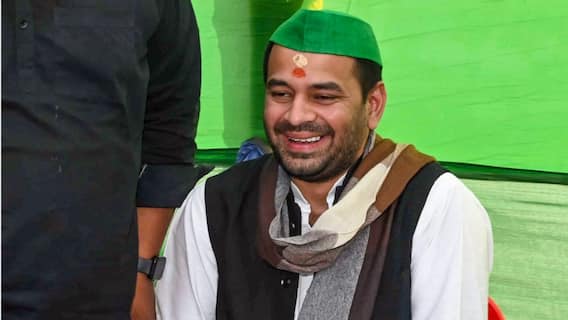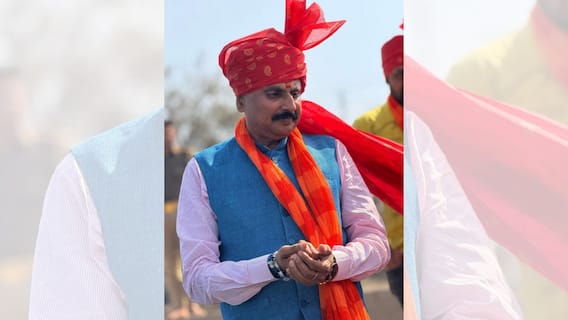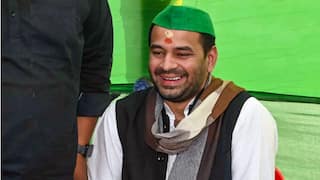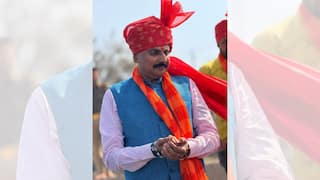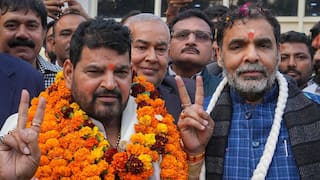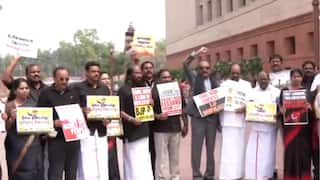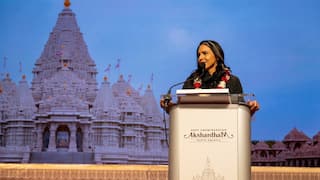Explorer
Raja Ram Mohan Roy Birth Anniversary: Reforms That Made Him "Father of Indian Renaissance"
To commemorate the 248th birth anniversary of Raja Ram Mohan Roy, we recall the many reforms by him which contributed in making India a modernized society in many ways.

Raja Ram Mohan Roy (1772 -1833) founder of the Brahmo Sabha movement in 1828. (File Photo/ Getty)
New Delhi: May 22 marks the 248th birth anniversary of Raja Ram Mohan Roy who is widely recognised as the "Father of Modern Indian". Born on May 22, 1772, in Radhanagar village in West Bengal’s Murshidabad district, Roy was initially called as Ramkanto Roy who grew up to be a great scholar and a renowned social reformer. Roy had a keen interest in academics and knew several languages including Sanskrit, Persian and English. He also knew Arabic, Latin and Greek language.
To commemorate the 248th birth anniversary of Raja Ram Mohan Roy, we recall the many reforms by him which contributed in making India a modernized society in many ways -
Religious Reforms
Raja Ram Mohan Roy was completely against the practice of idol worship, blind faith, superstitions and black magic from a young age. To fight the religious evils, orthodox Hindus and the fanatic Christian missionaries who challenged his ideas, Roy established various institutions such as the the Brahmo Samaj in 1828. He believed that every religion has truth in it and so, instead of establishing a separate religion, Rammohan decided to reform Hinduism.
Social Reforms
With the establishment of Brahmo Samaj to fight against religious odd, Roy also highlighted certain social evils such Sati System. The incident of his sister-in-law’s forced Sati after death of his brother left a deep impact on his mind. That’s when he diced to abolish the ritual that forces women to douse themselves in fire after the death of their husbands. Roy also raised voice against polygamy, child marriage, caste system, untouchability, superstitions and use of intoxicants. Simultaneously, he encouraged inter-caste marriages, women's education and widow re-marriages.
Educational Reforms
In order to promote the importance of academics in all sects of the society, Roy established many learned societies, educational institutions, school and colleges in India. Roy promoted and urged teaching of the scientific subjects like Mathematics, Physics, Chemistry and even Botany. His remarkable contributions also reflected in the newspaper and magazine published by him. His pioneering forays in journalism were aimed at educating Indians on a wide range of issues. His newspaper Sambad Koumudi helped people form an opinion about the issues affecting their daily life in British India.
During a visit to Britain, Roy died of meningitis on September 27, 1833, in Stapleton, northeast of Bristol. He was buried at the Arnos Vale Cemetery in England. Recently, the British government named a street in Bristol as ‘Raja Rammohan Way’ in the memory of Raja Ram Mohan Roy.
Follow Breaking News on ABP Live for more latest stories and trending topics. Watch breaking news and top headlines online on ABP News LIVE TV
View More
Advertisement
Trending News
Advertisement
Advertisement
Top Headlines
India
Cities
World
Sports
Advertisement


Dr Prosenjit NathThe writer is a technocrat, political analyst, and author.
Opinion







